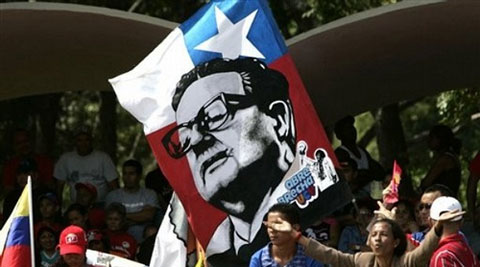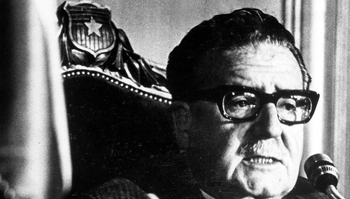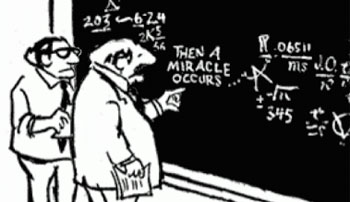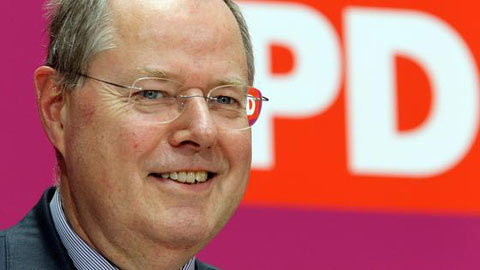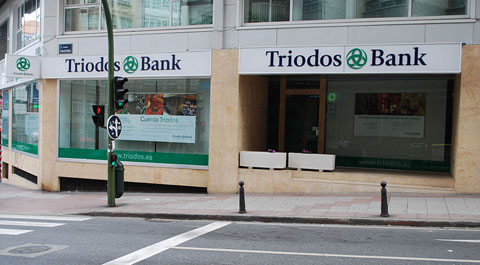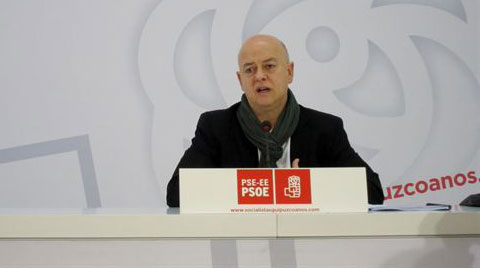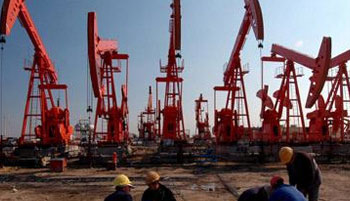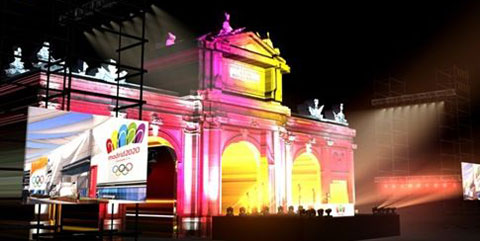Cambodia election board ratifies ruling party win
8092013
| |
Cambodia’s government-appointed election board has ratified the victory of incumbent Prime Minister Hun Sen’s ruling party, rejecting opposition claims that the polls were unfair.
| |
The results announced on state television this morning handed 68 National Assembly seats to Hun Sen’s Cambodian People’s Party and 55 to the opposition Cambodia National Rescue Party.
The opposition has contested the outcome of the July 28 election, saying it would have won the majority of seats had the election been fair, but its legal challenges were rejected.
It had threatened street protests and a boycott of the assembly unless until its demand for an independent probe of alleged election irregularities were met.
Hun Sen has ruled Cambodia for 28 years and remains firmly in control, although the opposition won significantly more seats than it had in the past.
The new parliament is supposed to be seated within 60 days of the election.
Nearly 20,000 opposition supporters gathered Saturday in Cambodia’s capital to cheer their leaders’ demands for an investigation of what their leaders said was vote tampering and widespread voter disenfranchisement. The opposition vowed on Saturday to continue its protests.
| |
Edit : Edit
Comments : Leave a Comment »
Categories : Uncategorized
EU stance on Syria ‘invaluable’: Merkel
8092013 Updated on : 08-09-2013 08:49 AM Updated on : 08-09-2013 08:49 AM |
German Chancellor Angela Merkel on Saturday hailed as “invaluable” the united European Union position urging “a strong response” to a deadly chemical weapons attack blamed on Syria’s regime.
“The signal given by a united European position in the face of this abominable conflict is of invaluable importance,” her spokesman Steffen Seibert said in a statement.
EU foreign ministers meeting in the Lithuanian capital Vilnius ton Saturday urged “a clear and strong response” to the attack, saying there was “strong evidence that the Syrian regime is responsible” but stopping short of endorsing a strike on the regime.
Speaking after the bloc’s 28 ministers held talks with US Secretary of State John Kerry, EU foreign policy Chief Catherine Ashton read out a statement saying the ministers “were unanimous in condemning in the strongest terms this horrific attack”.
Minutes before Merkel’s comments, German Foreign Minister Guido Westerwelle announced that Germany had signed on to a separate statement from a G20 summit in Saint Petersburg this week that also calls for a “strong response” to the Syrian attack.
Germany became the fifth EU member to sign the document, which was penned by 11 countries at the summit — including the United States, Britain, France, Italy and Spain.
Merkel said the “Vilnius success shows that the German position” at the G20 summit pushing for a common EU stand “was right”.
Merkel had insisted during a parliament debate in Berlin on Tuesday that “Germany will not take part in military action” in Syria but will also do “everything possible… for a united response by the international community” to the Syrian crisis.
Europe has been sharply divided over how to respond to US calls for military action against Syria after the attack, which Washington, Paris and London claim was carried out by the regime of President Bashar al-Assad.
The EU statement, agreed after two days of informal talks, stressed that there could be no end to the long and bloody Syrian war without a political solution.
It also urged the UN Security Council “to fulfil its responsibilities”, a clear reference to repeated refusals by Russia and China to sanction Assad.
France is the sole EU nation currently willing to take part in a US-led intervention, with most of the bloc’s governments reluctant to offer even political backing for military action without at best a UN mandate, or at least until the release of a much-awaited UN probe on the attack.
Edit : Edit
Comments : Leave a Comment »
Categories : Uncategorized
8092013
Edit : Edit
Comments : Leave a Comment »
Categories : Uncategorized
Tokyo won the right to host the Olympic Games for the second time, overcoming fears about radiation from the stricken Fukushima nuclear plant to land the 2020 edition of the world’s biggest sporting event.
| |
Members of the International Olympic Committee (IOC) meeting in Buenos Aires chose the Japanese capital, which previously hosted the Games in 1964, over Istanbul, after Madrid was dramatically eliminated following a first-round tie with the Turkish city yesterday.
Crowds gathered in Tokyo broke into wild cheers, despite the result coming in the early hours of the morning nearly a dozen time zones away, television pictures showed.
Japan’s Prime Minister Shinzo Abe had earlier flown in to the Argentine capital from the G20 summit in St Petersburg, Russia, to reassure nervous members about the safety of the nuclear plant some 220 kilometres (140 miles) from the city and fears about the leaking of contaminated water.
He told delegates that the situation was “under control”, adding: “It has never done or will do any damage to Tokyo.”
Fukushima operator the Tokyo Electric Power Co also played down fears of a possible spread of radiation in a separate message.
Concerns over Fukushima — seriously damaged in the devastating 2011 earthquake and tsunami that killed more than 18,000 people — had dogged the bid in the final days but Abe successfully allayed IOC members’ fears.
The final result was 60 votes for Tokyo against 36 for Istanbul, said the IOC.
Tokyo — third in the vote for the 2016 Games won by Rio de Janeiro — had been the frontrunners originally, as they promised a safe and financially secure Games in what they termed “uncertain times”.
The decision means it will be the fourth time that Japan plays host to the Olympics, having also organised hosted winter Games in Nagano (1998) and Sapporo (1972).
Asia will also see successive Olympics, as the South Korean resort of Pyeongchang is hosting the 2018 winter edition.
Madrid had looked to be the city with the momentum coming into the final week after an outstanding presentation to IOC members in Lausanne in July — and were hoping that like Rio de Janeiro for the 2016 race, they could go on to win.
But it was not enough, even with 28 of the 35 venues built and all the infrastructure in place plus a positive assessment by the IOC Evaluation Commission — the only IOC members allowed to visit the bid cities – over their relatively low budget.
Doubts about Spain’s recession-hit economy persisted to the end and not even some more upbeat news on the issue recently and Prime Minister Mariano Rajoy’s pledges that financing would not pose problems convinced enough members that they could deliver.
Istanbul had been hoping Turkey would become the first predominantly Muslim country to host the quadrennial sporting extravaganza.
But despite a passionate and dynamic campaign trading on bridging two continents and two cultures as well as an evocative “wake up in Asia compete in Europe” slogan, their bid was hampered in June.
Several IOC members were unimpressed by the heavy-handed way that the Ankara government handled anti-government protests that escalated from opposition to the redevelopment of an Istanbul park.
There was also nervousness surrounding the fallout from the bloody civil war in neighbouring Syria.
Prime Miniser Abe said in his presentation that the Olympics were part of his DNA, having experienced them for the first time at a young age.
“I was at the opening ceremony in Tokyo in 1964 and saw several thousand doves all released into the clear blue sky and coming together to make the Olympic rings,” he said.
He also cited his experience meeting one of the children on a trip to visit survivors of the earthquake and tsunami and said sport had a key role in society to aid recovery.
“I met with one boy in the affected area, he was holding a cherished football, given to him by a footballer from overseas who had visited the area,” said Abe.
“That ball was not just a football to him, it represented his hope for the future. “Today under the blue sky of Fukushima there are young boys playing football and looking into the future and not the past.”
| |
Edit : Edit
Comments : Leave a Comment »
Categories : Uncategorized
Nasheed wins first round of Maldives’ presidential election
8092013
Mohammed Nasheed has emerged as a clear leader in the first round of the Maldives’ presidential election receiving 45 per cent votes but fell short of an outright majority resulting in another round of run-off between top two candidates scheduled later month.
| |
The Election Commission here announced results early today after a nightlong counting, declaring Nasheed a clear winner in the first round of polls with 95,224 votes.
Nasheed was followed by brother of former President Abdul Gayoom, Abdullah Yameen, who received 25.35 per cent votes (53,099), Gasim Ibrahim with 24.07 per cent (50,422) and present incumbent Waheed Hassan with 5.13 per cent (10,750).
Over 88 per cent votes were cast during the elections. “These are preliminary results. We will be getting ballot papers from various islands in two days and if required corrections would be made by September 14 after which final results will be announced.
But these corrections are not likely to have major impact on the results,” President Election Commission Fuwad Taufeek said.
Under the country’s election laws, if none of the candidates get more than 50 per cent of the vote, a run-off will take place between the top two candidates.
If final results do not bring much change, Nasheed will be facing a September 28 run-off against Abdullah Yameen. On the alleged irregularities at some counting stations, the Election Commissioner said they have received complaints but it has not taken any decision on recount on any ballot.
Taufeek said if any party approaches court and gets a decision, they would be open for a recount in front of representatives of all the parties.
India has been engaging with both the candidates – Nasheed and Yameen – who are likely to contest for the second round, much before the elections.
Both the leaders have recently visited New Delhi and met Prime Minister Manmohan Singh assuring full support, sources said here.
Former President Abdul Gayoom and brother of Yameen had also visited New Delhi in June. India, which shares close ties with the archipelago nation, is the of the view that multi-party democracy is in a very nascent stage and should be given time to deepen its roots here, they said.
Four candidates – President Dr Mohamed Waheed, Nasheed, Progressive Party of Maldives candidate Abdulla Yameen and Jumhooree Party candidate and business tycoon Gasim Ibrahim – are in the fray for the top job.
First multi-party free elections were held in Maldives in 2008 after three-decades of Mohammed Abdul Gayoom’s rule in which Nasheed won.
He had to resign after four years after security forces joined protests led by the opposition parties over the arrest of a judge. Nasheed’s ouster resulted in the elevation of then Vice-President Mohammed Waheed as his successor.
Over 2229 local observers, 102 international obervers, 1343 representatives of political parties besides 1642 local and 225 international journalists are keeping a hawk’s eye on the developments in this young multi-party democracy.
| |
Edit : Edit
Comments : Leave a Comment »
Categories : Uncategorized
Tripura achieved the first position in literacy
8092013
Tripura achieved the first position in literacy with 94.65 percent, beating Kerala (93.91 percent), Tripura Chief Minister Manik Sarkar announced in Agartala on Sunday.
| |
“Tripura jumped to first position among the states of the country in literacy from the 12th position in the 2001 census and the fourth position in the 2011 census,” Sarkar said at a function on the occasion of International Literacy Day.
Sarkar said that after Tripura attained 87.75 percent literacy in the 2011 census, a government survey was conducted by the eight district magistrates in August 2012 which found that only 131,634 people of the state’s 37 lakh people, including those aged 50 and above, were illiterate.
“Over 8,254 voluntary literacy workers (VLW) have worked tremendously with full dedication under 8,152 adult literacy centres to make the leftover (131,634 people) unlettered people literate,” the chief minister said.
Over 85 master trainers have supervised the work of the VLWs, who have worked at the village and habitation levels. Anganwadi workers under the social welfare department have also assisted the VLWs in their endeavour.
“The final evaluation of the neo-literate people was conducted across the state August 10-25 under the supervision of the (Kolkata-based) Indian Statistical Institution (ISI),” the chief minister said, adding that the state’s literacy had now risen to 94.65 percent from the 87.75 percent in the 2011 census.
The state government felt, Sarkar said, that after the final report of the ISI, the state’s literacy would cross 96 percent.
According to the 2011 census, literacy level is 93.91 percent in Kerala and 91.58 percent in Mizoram, among the most literate states in the country. The national literacy rate, according to the 2011 census, is 74.04 percent.
The Tripura success story is attributed to the involvement of local government bodies, including gram panchayats, NGOs and local clubs under the close supervision of the State Literacy Mission Authority (SLMA) headed by the chief minister.
Former census director Dilip Acherjee, who has also held the post of school education department secretary in the state, told a news agency: “In Tripura, increase of female literacy is better than their male counterparts.”
“The literacy rate of females during the period of 2001 and 2011 census rose from 64.91 to 83.15 percent, with an increase of 18.24 percent, while in the case of men the increase was just 11.18 percent — from 81 to 92.18 percent,” Acherjee said. It was under Acherjee’s supervision that the 2011 census was conducted in Tripura.
While Mizoram and Tripura are among the toppers in literacy in India, another northeastern state, Arunachal Pradesh (66.95 percent), is placed second-lowest in literacy in the country, just above Bihar, which recorded the least literacy of 63.82 percent.
| |
 Updated on : 08-09-2013 09:48 AM
Updated on : 08-09-2013 09:48 AM





